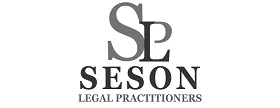As a matter of fact and obligation, every individual, whether resident or non-resident in Nigeria, persons in paid employment or businesses, or persons who derive their income from Nigeria, as well as companies that operate in Nigeria, are all liable to pay tax. Failure to deduct and remit tax or failure to pay taxes of any kind as the case may be attracts punitive fines and penalties.
Like other countries, the main function of the Nigerian tax system is to generate revenue for the running of the government at all levels and provide infrastructure to the public. Effective tax drive is achieved through an efficient tax administration and tax system reforms. These elements also create a tax culture, reduced incidences of corruption and tax evasion.
Taxes and Tax Laws in Nigeria
Over the years, various tax laws in Nigeria have made provision for different taxes. A review of the various tax laws presents an insight into the different taxes in Nigeria;
- Companies Income Tax (CIT):
This is a tax imposed on profit of a company from all sources. It is one of the main taxes administered and collected by the Federal Inland Revenue Service (FIRS). It is a tax paid on the income of incorporated companies. Company's Income taxes are regulated by the Companies Income Tax Act (CITA), Cap. C21, LFN 2004 (as amended). The rate on this tax is 30% of a company of total profit less all expenses for the period which a company reasonably incurred in generating the taxable profit.
- Personal Income Tax (PIT):
This tax is imposed on income of individuals (employees), corporate sole or body of individuals, communities, families or trustees or executors of any settlement as the case may be. It also covers taxation of sole traders, partnership assessment, and taxation of estates. PIT is regulated by the Personal Income Tax Act Cap P8 LFN 2004 (as amended). The relevant tax authority responsible under the law to administer this type of tax may vary from the FIRS to the various State Boards of Internal Revenue.
- Value Added Tax (VAT): This is a tax charged on the sale of specified goods and services at the rate of 5%. It is also referred to as a consumption tax and it is mostly borne by the final consumer. The FIRS is vested with the power of administration and management of VAT in Nigeria. It is regulated by the VAT Act and the VAT (Amended) Act 2007. Recently, the Federal Government of Nigeria has approved a 50% increase in VAT for supply of goods and services, from 5% to 7.5%. The new rate is schedule to take effect from 2020.
- Capital Gains Tax (CGT): This is a tax charged where there is a disposal of assets. Where any capital sum is derived from a sale, lease, transfer, assignment, compulsory acquisition or any disposition of properties classified as chargeable assets. It is regulated by the Capital Gains Tax Act, Laws of the Federation CAP C1 LFN, 2004 (as amended). CGT is usually charged at a flat rate of 10% on chargeable assets. CGT may not be charged from assets which are not in connection with any trade carried on by the organisation. CGT is also not be applicable to charitable or educational institution of public character.
- Withholding Tax (WHT):
This is an advance tax payment deduction made on any income or disbursement due to a taxable person or a taxable corporation, for onward remittance to the relevant government authority. This tax when deducted from source is subsequently remitted to the relevant tax authorities. WHT in Nigeria varies and ranges from 2.5 to 10% for companies and 5 to 10% for individuals depending on the nature of the transaction. Section 78 of the Companies' Income Tax Act (as amended) provides that where a company makes a payment to another company or to another individual, either as interest (with interbank deposit and royalty included), rent, dividend, etc. such a company shall at the time of making the time of making the payment deduct an advance tax of 10% of the gross amount that is paid and remit such deducted and withheld tax to the FIRS forthwith.
- Stamp Duties:
The Stamp Duties Act, CAP S8 LFN 2004 (as amended) regulates stamp duties in Nigeria. Stamp duties due from individuals are paid to the respective State Government, while corporate bodies pay theirs to the Federal Government. The stamp duties rates applied by FIRS are in two forms, namely; flat rate charges and ad valorem charges. In line with the Federal Inland Revenue Service (Establishment) Act, FIRS is empowered to administer taxes for stamp duties listed in the first schedule to the Act. It is also administered by the respective States Internal Revenue Services (IRS)
- Custom and Excise Duties:
These are taxes charged at the Nigeria's Port of Entry on certain imported goods. It is usually administered and collected by the Nigerian Customs Service by virtue of the Customs and Excise Management Act. There are two types of taxes charged at the Nigeria Port of Entry; one is in certain imported goods and the other is on some exported good. Thus, custom and excise taxes are imposed on goods either for revenue purposes or to discourage consumption of such products. This is why it is a times referred to as consumption tax.
- Education Tax (EDT):
This tax is regulated by the Education Tax Act, CAP E4, Laws of the Federation of Nigeria, 2004 and administered by the FIRS. It is also governed by Tertiary Education Trust Fund (Establishment, Etc.) Act 2011. EDT is imposed on all companies registered in Nigeria. The rate of the tax is 2% of assessable profit. The amount in the Fund is distributed between Universities, Polytechnics and Colleges of Education in the ratio 2:1:1 respectively.
- Petroleum Profit Tax (PPT):
This tax is imposed on income of companies in petroleum operations (Upstream). The tax is governed by the Petroleum Profits Tax Act, Cap P13 LFN 2004 (as amended). Companies liable to PPT are not liable to Companies Income Tax (CIT) on the same income.
The administration of these laws involves assessment, collection and accounting for revenues accruing to the Government of the Federation.
The Current Regime for Tax Administration in Nigeria
Tax administration is simply defined as the implementation of the various tax laws in a country in order to achieve its objective. In Nigeria tax administration is carried out by the three tiers of government, namely; the Federal Government, the thirty-six States of the Federation and the Federal Capital Territory and the various Local Governments, through the machineries set up by the respective government.
The FIRS is the body statutorily empowered to administer and enforce the various tax laws in Nigeria at the federal level. The States' Governments administer tax through the various State Boards of Internal Revenue, while the Local Government Revenue Committee of each State administers taxes at the local government areas.
The FIRS was established by the Federal Inland Revenue (Establishment) Act, 2017. It is established to administer the various Federal taxes as recognized by the relevant laws. This power includes power to assess, collect and account for revenues accruing to the Government of the Federation. Under Section (8) (1)(a)(b) and (c) of the Act the principal functions of the FIRS are;
(a) assess persons including companies, enterprises chargeable with tax;
(b) assess, collect, account and enforce payment of taxes as maybe due to the Government or any of its agencies;
(c) collect, recover and pay to the designated account any tax under any provision of this Act or any other enactment or law;
There is also the Joint Tax Board (JTB) which is a creation of Personal Income Tax Act. It is made up of officers of the Federal and State tax authorities. It serves as a big umbrella covering all tax authorities in Nigeria. The official role of the JTB remains purely advisory.
The content of this article is intended to provide a general guide to the subject matter. Specialist advice should be sought about your specific circumstances.


